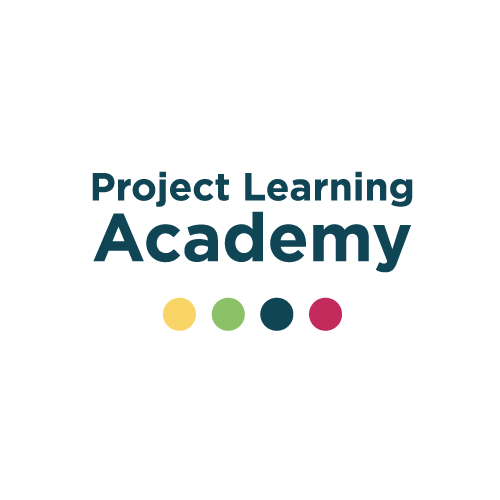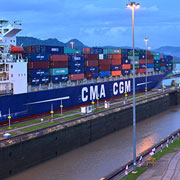PROGRAMS
THE GATEWAY TO OPEN LEARNING FOR LATIN AMERICA AND THE CARIBBEAN
- Project Learning Academy
- Online Learning Training
- WATER & CLIMATE CHANGE
- PUBLIC-PRIVATE PARTNERSHIPS
- DEVELOPMENT EFFECTIVENESS
- PROJECT MANAGEMENT FOR RESULTS
- MANAGEMENT OF SOCIAL AND ENVIRONMENTAL RISK
- SUBNATIONAL GOVERNMENTS
- INTEGRATION AND TRADE
- Evidence-based regulations
Contact with us
INDES Programs are a set of online courses thematically interrelated and frequently interdependent, offered as a cohesive, more comprehensive, and lengthier learning opportunity. Some of our programs are directed at a diverse audience from organizations that work on a same institutional context such as Subnational Governments or public and private entities and agencies linked to regional integration. In most cases, courses that are part of a program might be taken individually, without any commitment to completing the full program.
The Project Learning Academy of the Inter-American Development Bank (IDB) is a new and innovative program that strengthens the technical skills of those involved in development projects financed by the IDB. The program enables government agencies to enhance their knowledge and skills on topics such as effectiveness, planning procurement, disbursements, environmental and social safeguards, risk management, communications, monitoring, the sharing of lessons learned, and much more. It also facilitates the acquisition of digital certifications and badges aimed at empowering our development partners and providing them with the tools and resources necessary for the success of their projects. The Project Learning Academy is aligned with the priorities of the IDB and the mission to improve lives in the region as well as the capacity of government agencies.
The Online Learning Training Program is an initiative of INDES that promotes the development of the region through the training of educators in virtual learning environments. This initiative is supported by INDES's extensive experience in online learning, both in closed courses with a tutor and in open and massive courses. This Program currently consists of a cycle of Talks/Seminars, a 10-hour boot camp, four workshops ranging from 7 to 10 hours, and three 5-week courses, one of which is offered in three languages: Spanish, English, and Portuguese. We invite you to review the following multimedia resource to learn all the details.
Implementing more effective interventions to solve development problems, improving public services, using resources efficiently, and managing public agencies effectively have been ongoing concerns for Latin American and Caribbean governments. Government officials are now paying closer attention to the results obtained by their administrations. Citizens are now demanding not only universal access but also quality in the services that the government provides. To meet this growing demand for public sector effectiveness, governments have formulated new laws, created or modified institutions, and implemented innovative management methodologies and instruments. The courses under this Program are focused on strengthening the knowledge and skills of development initiatives managers and policy makers to ensure greater effectiveness in public administration performance.
Investing in the capacity building of managerial and technical staff of public and private entities and agencies linked to the integration agenda in Latin America and Caribbean is a strategic decision not only to increase the effectiveness of those organizations, but also to help boost regional growth and development. Capacity building and the creation of networks and communities of practice amongst diverse organizations and professionals that interact during the negotiation and implementation of different integration agreements, programs and procedures, constitute key tools to promote inter-institutional and cross border cooperation and coordination, which are backed by the IDB´s operational.
According to the Project Management Institute (PMI) and the Standish Group, over 70% of investment projects in Latin American and the Caribbean experience execution delays that can result in increases between 30-70% of their execution time. Since most of this projects are delivering time sensitive services (water, sanitation, transportation, heath, et.) to underserved populations, these delays represent a huge opportunity cost lost for the country. PM4R offers project management training, facilitation and coaching products to teams executing these projects in order to increase their expertise with project management tools and techniques in order to mitigate the management and operational risks of these projects.
Building capabilities through activities such as training and applying knowledge products are recognized vehicles for contributing to strengthening individual and group capabilities within governments. From them, organizational and inter-institutional strengthening may be derived as well. This program directs its actions towards building capabilities as an effective tool for advancing the institutional strengthening in the region. This program offers an integral approach that visualizes the subnational government as part of an adaptive system, complex and interrelated with different levels of government and its organizations. The integral approach in this case is given by complementary relationships between strengthening process and the modernization of public administration; strategic local planning and the encouragement of social partnerships; the promotion of mixed intermediation institutions for local development; the promotion of regional systemic competitiveness; the sustainable development of cities and the knowledge and application of Public-Private Partnerships (PPP). The objective of the program is to develop institutional capabilities of subnational governments of the region's borrower countries through training for its officials in the public sector, counterparts in the private sector, other interested institutions such as "think tanks", development institutes and academics.
Latin America and the Caribbean are particularly vulnerable to climate change impacts. By 2050, rising sea levels, temperatures increases, changes in rainfall patterns will result in an estimated annual cost of around 2-4% of the region’s GDP. In order to be effective, the region’s development agenda must include further climate change variables into key national strategies involving infrastructure projects, basic services, fiscal reforms, social programs, and economic plans. Ministries of Finance and Planning are key players when working on promoting low carbon and resilient development path. These ministries are the ones responsible for establishing development plans, designing the budget, as well as defining whether how public investments are carried out. Mainstreaming climate change into these processes becomes crucial for advancing the region into a more resilient and less carbon intensive path. The IDB is working with public institutions in the region to support capacity building in these topics. IDB engages in capacity building with the objective of facilitating access to information on low carbon emissions financing pathways. We facilitate the exchange of knowledge with the vision of building the capacity necessary for effective use of current and future international mechanisms for climate actions.
The "Better Regulations, Better Results" Program and its content are aimed at officials, specialists, and decision-makers involved in the regulatory process of their country, whether from institutions that coordinate and oversee regulatory policy, or from sectoral regulatory agencies, the private sector, academia, and other interested parties. The knowledge offering of the program includes a course on Regulatory Impact Analysis and another on Regulation and Technological Innovation, through which the IDB has trained public officials from several countries in the region.
The Environmental and Social Safeguards Unit (ESG) of the IDB identifies and manages environmental and social impacts and risks in Bank operations in order to achieve long-term environmental and social viability and foster sustainable development in the region. Safeguard policies improve lives by increasing the sustainability of projects and reducing negative impacts to people and the natural resources they depend on. The ESG training program has the objective of improving capacity on local counterparts to guarantee optimal management of the environmental and social risk on IADB financed projects.








